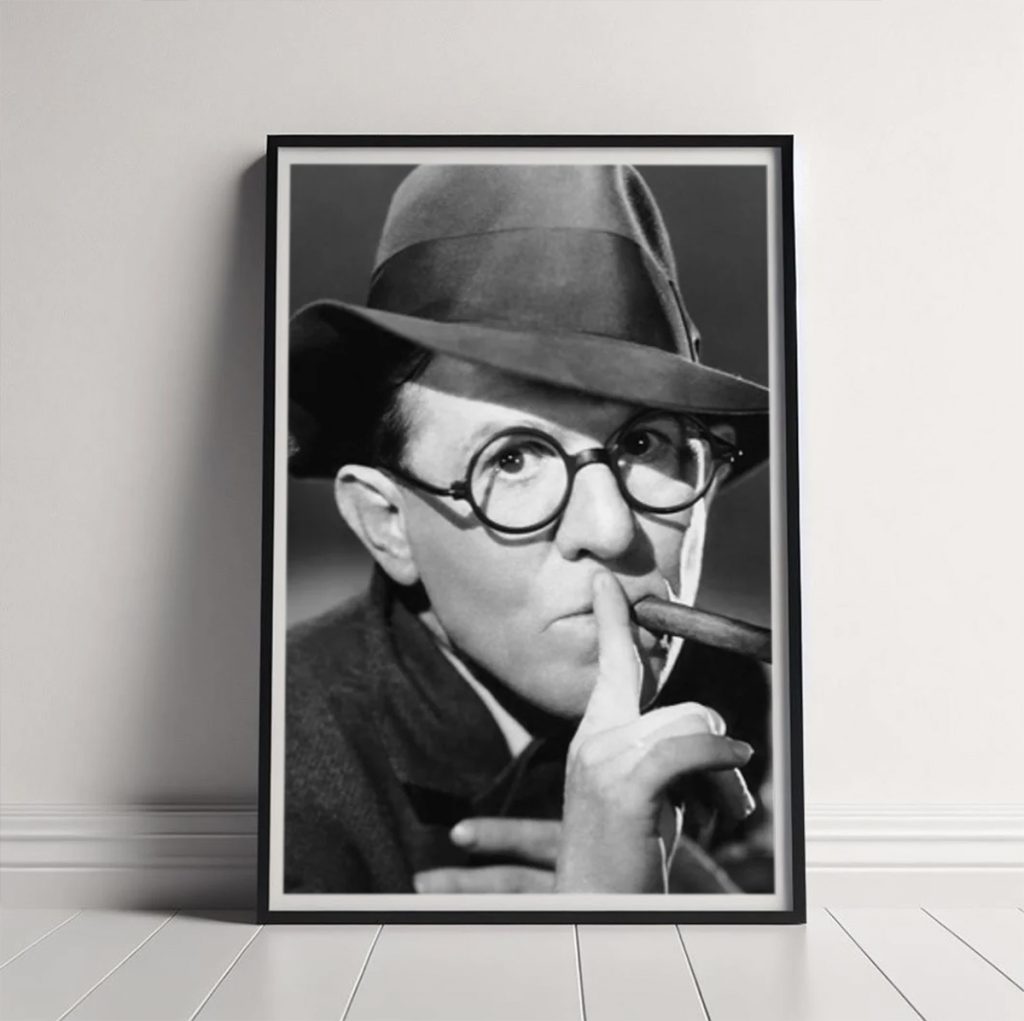
Al Boasberg
Actor
Screenwriter
Film director
About Al Boasberg
Al Boasberg: Buffalo’s Gift to Comedy and Hollywood
Buffalo, New York, has been home to countless trailblazers in various fields, but few have managed to leave a mark as unique and hilarious as Al Boasberg. Born on December 5, 1891, Boasberg grew up in Buffalo before becoming one of the most influential figures in early Hollywood comedy. Known as a brilliant writer and a trailblazer in comedic storytelling, Boasberg’s work has shaped the world of entertainment in ways still felt today.
A Buffalo-Born Comedy Legend
Al Boasberg was born into a family of Jewish immigrants in Buffalo, where he spent his formative years. Growing up, he displayed an innate sense of humor and a sharp wit—qualities that would later become his signature as a comedy writer. While little is documented about his early life in Buffalo, those who knew him often remarked on his quick thinking and his ability to crack people up with effortless charm. It was clear even in his youth that Boasberg would follow a path that revolved around creation and laughter.
Buffalo, which at the time was a vibrant city fueled by industry and cultural exchange, provided the fertile ground for Boasberg’s imaginative mind. The city’s spirit of hard work and innovation resonated with him, inspiring him to seek out new, creative horizons. That drive eventually led him west to Hollywood.
Shaping the Golden Age of Comedy
By the early 1920s, Boasberg had moved to Los Angeles, where he began writing material for vaudeville performers. His witty and offbeat humor quickly caught the attention of rising stars in comedy, and he became one of the go-to writers for the biggest names of the time. But Boasberg wasn’t just writing jokes—he was redefining the essence of comedic storytelling as the entertainment industry transitioned from vaudeville to cinema.
One of his most notable contributions was his role in shaping the early careers of Jack Benny and Milton Berle, two comedians who would go on to become household names. Boasberg’s writing helped Benny refine his iconic slow, sarcastic delivery, while Berle credited him with teaching him the timing and structure that became hallmarks of his own career.
Boasberg’s influence extended into film, where he contributed as a writer and “script doctor” for some of the early talkies. His sharp humor and unique perspective helped bridge vaudeville-style comedy with the emerging medium of cinema. He worked alongside Hollywood legends like Buster Keaton, providing uncredited contributions to classic films such as The General.
His work wasn’t limited to writing jokes—Boasberg also had a keen eye for character development and structure. For example, he is often credited with defining elements of Groucho Marx’s iconic persona, helping the Marx Brothers polish their irreverent and anarchic comedy style.
Anecdotes and Lesser-Known Contributions
Al Boasberg’s career wasn’t just defined by success—it was also punctuated with stories that reflect his one-of-a-kind personality. Known for his eccentric work habits, Boasberg was infamous for rewriting entire scripts at the last minute, often locking himself in his office until he came up with something memorable. One story recounts how he mailed a completed script to the production studio in pieces, leaving the directors to puzzle it all back together. It was his way of keeping creative control while driving home a point about the disjointed nature of comedy.
Despite being a behind-the-scenes force, Boasberg was beloved by the stars he collaborated with; they valued his ability to bring out their best performances through his words. However, he was also known for his irreverence toward industry norms, often butting heads with producers over creative differences. While this sometimes limited public recognition of his contributions, it only solidified his reputation as a fiercely independent creator.
One lesser-known project Boasberg worked on was an early version of the script for A Night at the Opera, one of the Marx Brothers’ most acclaimed films. His fingerprints are all over the film’s razor-sharp barbs and perfectly timed gags, although much of his work went uncredited.
The Legacy of a Comedy Pioneer
Al Boasberg didn’t just write jokes—he transformed comedy into an art form that would influence generations of writers and performers. His style of humor, characterized by fast-paced dialogue and wordplay, became the foundation for much of what we consider classic comedy today. He laid the groundwork for everything from screwball comedies to modern sitcoms, proving that comedy could be clever, cerebral, and culturally impactful all at once.
Buffalo played no small role in shaping the man who would go on to humor the world. The city’s cultural diversity, coupled with its role as a hub for vaudeville performers passing through, gave Boasberg access to a wealth of comedic inspiration. His Buffalo roots instilled in him a practicality and work ethic that helped him thrive in the chaotic world of Hollywood.
While Al Boasberg passed away far too early—at just 44 years old in 1937—his legacy has endured. From the comedians he mentored to the films he influenced, his impact is felt across the entertainment industry. Buffalo, proud of its local hero, recognizes Boasberg as one of its most creative exports, someone whose imagination brought joy to millions.
Today, Al Boasberg is remembered not just as a writer, but as a pioneer who helped craft a new language of laughter. Each December 5, we celebrate the birth of this comedy genius, honoring his Buffalo roots and his remarkable contributions to Hollywood’s golden age. Al Boasberg may have left Buffalo, but the city’s spirit was forever imprinted in his work. His story is a testament to the power of humor and the enduring influence of creativity born in the Queen City.
